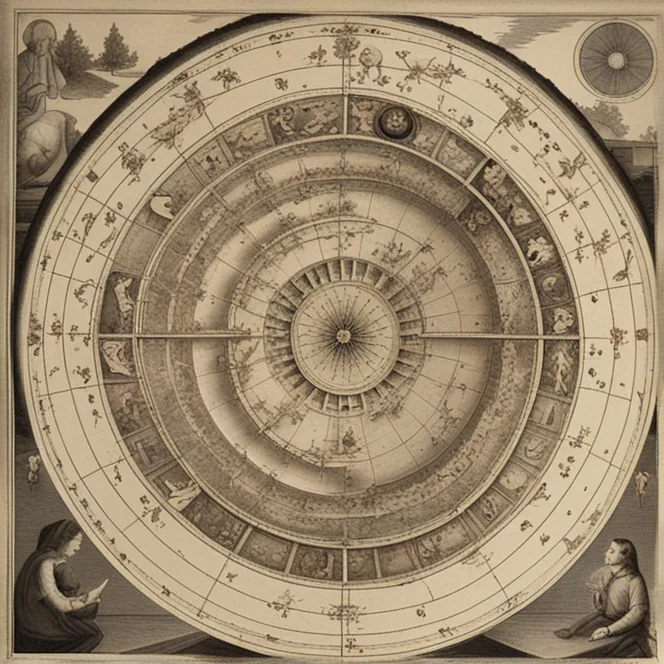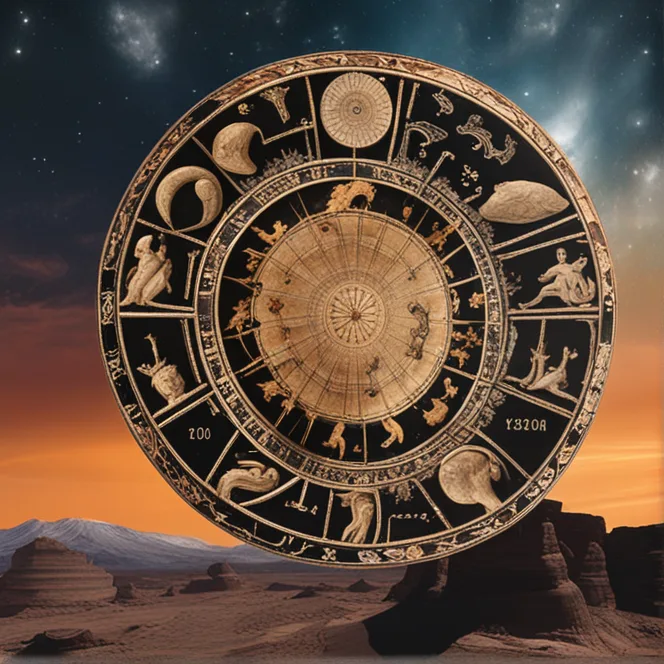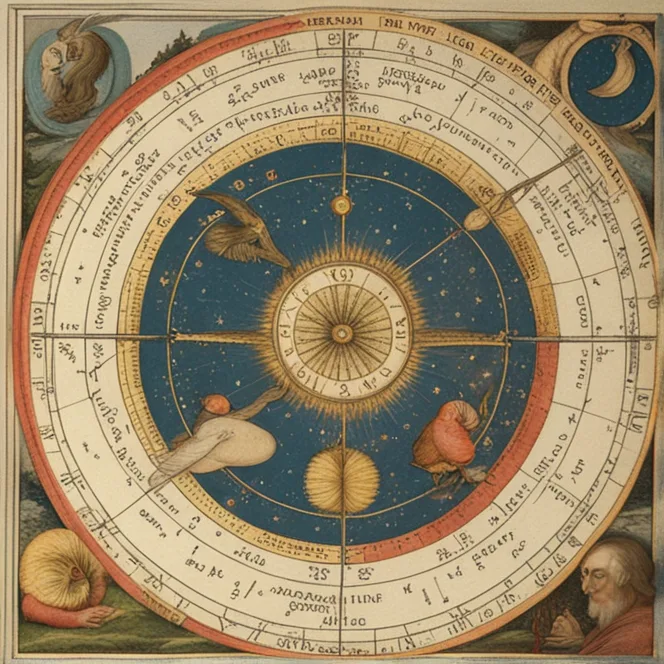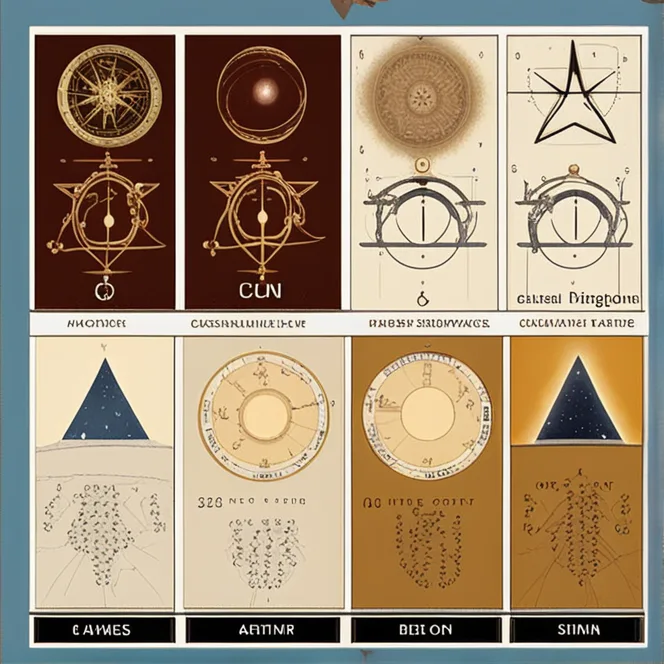
The Origins Of Astrology
Discover the enigmatic beginnings of astrology, the age-old practice that has captivated humanity for millennia, and explore its ancient origins.
article by Priya Deshmukh
The Dawn of Astrological Practice
Astrology, the ancient practice of interpreting celestial patterns to glean insights into human affairs, has a beginning shrouded in mystery. Its earliest roots can be traced back to the 3rd millennium BCE, flourishing in the fertile intellectual grounds of Mesopotamia. The Sumerians, and later the Babylonians, are credited with laying the foundational stones of what would become astrological tradition. They made meticulous observations of the heavens, recognizing patterns and ascribing meaning to celestial events which they believed influenced life on Earth.

Astrology Across Cultures
While Mesopotamia might be the cradle of astrology, the practice soon spread to other civilizations, each one shaping its own astrological systems. Ancient Egypt played a significant role in the development of astrology, with their understanding of the stars deeply intertwined with their religious beliefs and afterlife rituals. Similarly, in ancient Greece, astrology was heavily influenced by Babylonian practices and evolved under philosophers who sought to rationalize the heavens. From here, it spread through the Roman Empire and eventually found a place within Islamic scholarship, where it was preserved and further developed during medieval times.

From Observation to Horoscope
The Babylonians were pivotal in transforming astrology from mere celestial observation to a more intricate form that included the casting of horoscopes. By the 5th century BCE, they had developed the zodiac – the division of the sky into twelve equal parts, each linked to constellations and associated with specific times of the year. This system allowed astrologers to make more personal, predictive readings based on the positions of planets and stars at a person's birth, a practice that has continued through to modern-day horoscopes.

Astrology's Golden Age
Astrological thought reached new heights during the Hellenistic period, following Alexander the Great's conquests, which merged Greek and Eastern cultures. This era birthed a synthesis known as 'Hellenistic astrology,' renowned for its complexity and depth. One of the most prominent figures was Claudius Ptolemy, whose works, particularly the ‘Tetrabiblos,’ became essential reading for astrologers and supported astrology's standing as a scholarly pursuit. Ptolemy's contributions helped astrology flourish, and his systematization of the practice laid the groundwork for its survival through the ages.

Ancient Wisdom, Modern Appeal
Despite the scientific revolution and the decline of astrology's academic status, its allure remains potent in modern culture. Astrology's focus on the individual and its ability to provide personal insights and guidance, keeps it popular. Now, with the advent of the internet and digital technology, astrology has found a fresh platform for reaching a global audience with websites dedicated to palmistry, horoscopes, and compatibility analyses promising personalized astrological content.
Astrology's Enduring Legacy
Astrology's legacy is embedded in humanity's historical quest to understand its place in the cosmos. Its ancient founders have long passed, yet the practice continues to evolve, integrating with new cultures and contexts. As an interpretative art, it bridges the mystical and the mundane, offering a narrative of human life that is interwoven with the tapestry of the universe. Astrology, millennia old yet ever new, beckons those seeking meaning in the stars to this day.
Published: 12/5/2023
Modified: 12/5/2023
More predictions
Come back here soon to learn more about yourself and your future


Planetary Influences On Yearly Fashion & Beauty Trends
Fashion and beauty trends are not solely products of creativity and innovation; they are also deeply influenced by celestial forces. Planets and their positions in the cosmos play a significant role in shaping our yearly style choices and beauty routines. In this comprehensive exploration, we'll delve into the fascinating world of planetary influences on fashion and beauty trends, uncovering how each celestial body impacts our sense of style, self-expression, and aesthetics.


The Magical Path to Astrological Understanding
Explore the cosmic dance of astrology, from zodiac signs to birth charts, and discover how celestial bodies influence our lives.


Celestial and Palmar Insights: An Integrated Approach to Palmistry and Astrology
Explore the ancient arts of palmistry and astrology to gain insight into your personality, destiny, and life path.